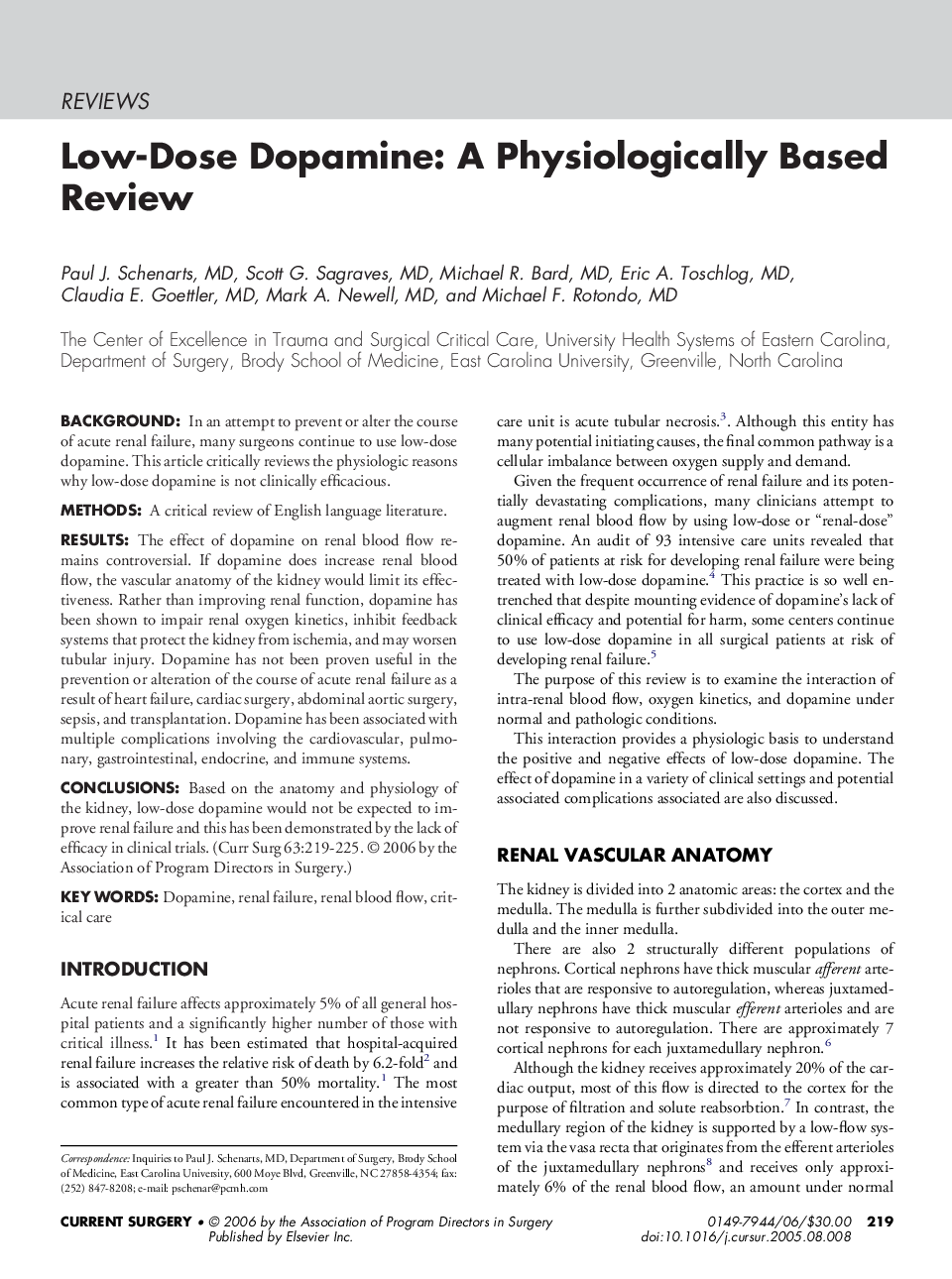| Article ID | Journal | Published Year | Pages | File Type |
|---|---|---|---|---|
| 4284424 | Current Surgery | 2006 | 7 Pages |
BackgroundIn an attempt to prevent or alter the course of acute renal failure, many surgeons continue to use low-dose dopamine. This article critically reviews the physiologic reasons why low-dose dopamine is not clinically efficacious.MethodsA critical review of English language literature.ResultsThe effect of dopamine on renal blood flow remains controversial. If dopamine does increase renal blood flow, the vascular anatomy of the kidney would limit its effectiveness. Rather than improving renal function, dopamine has been shown to impair renal oxygen kinetics, inhibit feedback systems that protect the kidney from ischemia, and may worsen tubular injury. Dopamine has not been proven useful in the prevention or alteration of the course of acute renal failure as a result of heart failure, cardiac surgery, abdominal aortic surgery, sepsis, and transplantation. Dopamine has been associated with multiple complications involving the cardiovascular, pulmonary, gastrointestinal, endocrine, and immune systems.ConclusionsBased on the anatomy and physiology of the kidney, low-dose dopamine would not be expected to improve renal failure and this has been demonstrated by the lack of efficacy in clinical trials.
